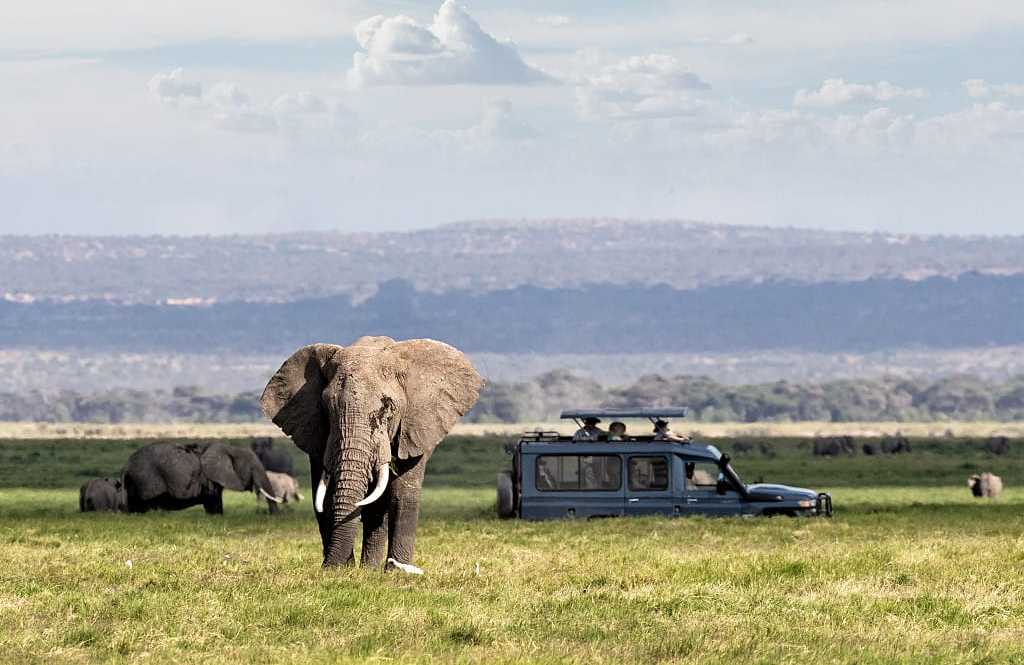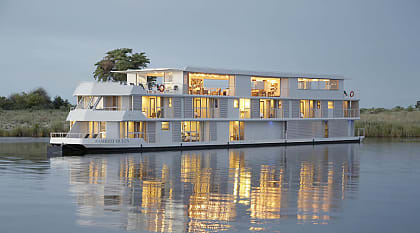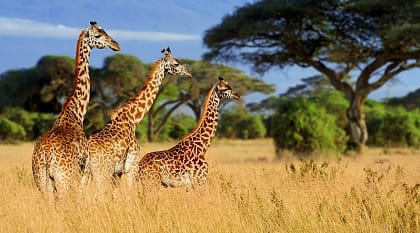The safari regions of Africa can be found across its diverse countries. Each offers a unique ecosystem, wildlife experience, and distinct character. At Zicasso, we specialize in crafting itineraries that connect these diverse habitats for a comprehensive journey.
- Botswana: Famous for the pristine waterways of the Okavango Delta, which you can explore by dugout canoe, and the elephant-rich Chobe National Park, perfect for a river safari.
- Kenya: The grande dame of East African safaris, known for the Maasai Mara and its role in the Great Migration. From here you can admire views of Mount Kilimanjaro from Amboseli or take a hot-air balloon ride over the plains.
- Tanzania: Home to the vast, wildlife-filled plains of the Serengeti National Park, the unique ecosystem of the Ngorongoro Crater, and the iconic Mount Kilimanjaro.
- South Africa: A diverse destination offering malaria-free options like Madikwe Game Reserve, the famous Kruger National Park, and the exclusive leopard sightings in the adjoining Sabi Sands Private Game Reserve.
- Zambia: The country offers a raw, off-the-beaten-path feel in vast, unspoiled parks like South Luangwa and Kafue, known for incredible walking safaris and diverse wildlife along their rivers.
- Zimbabwe: Home to the crowd-free, Big Five destination of Hwange National Park and the spectacular Victoria Falls, which it shares with Zambia.
- Namibia: A land of dramatic contrasts, from the towering red dunes of Sossusvlei to the unique desert-adapted wildlife of Etosha National Park.
- Rwanda and Uganda: The premier destinations for once-in-a-lifetime gorilla and chimpanzee trekking encounters in their dense, verdant rainforests.
To delve deeper, explore our guide on How to Choose a Safari Destination for Your Trip.



